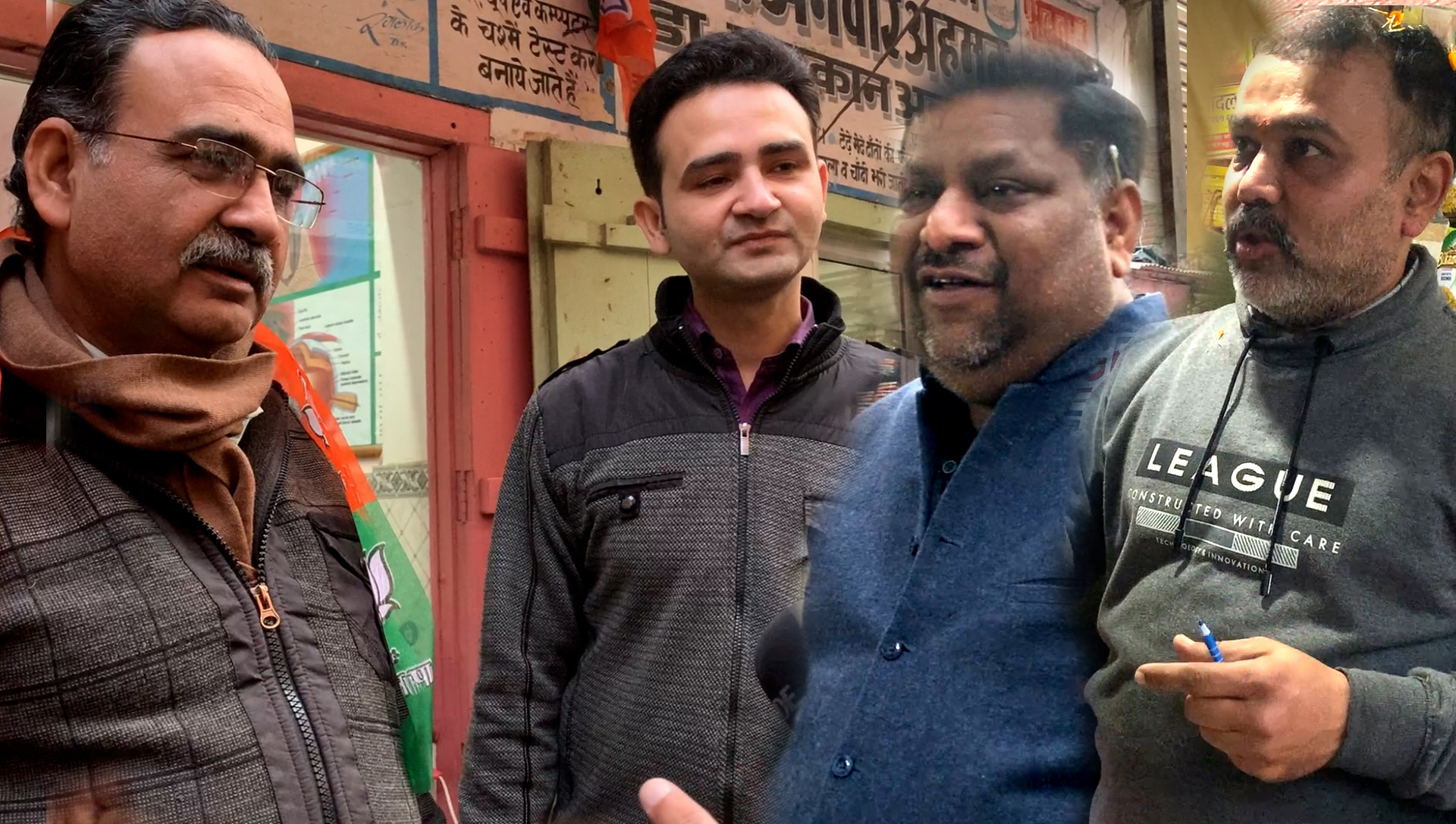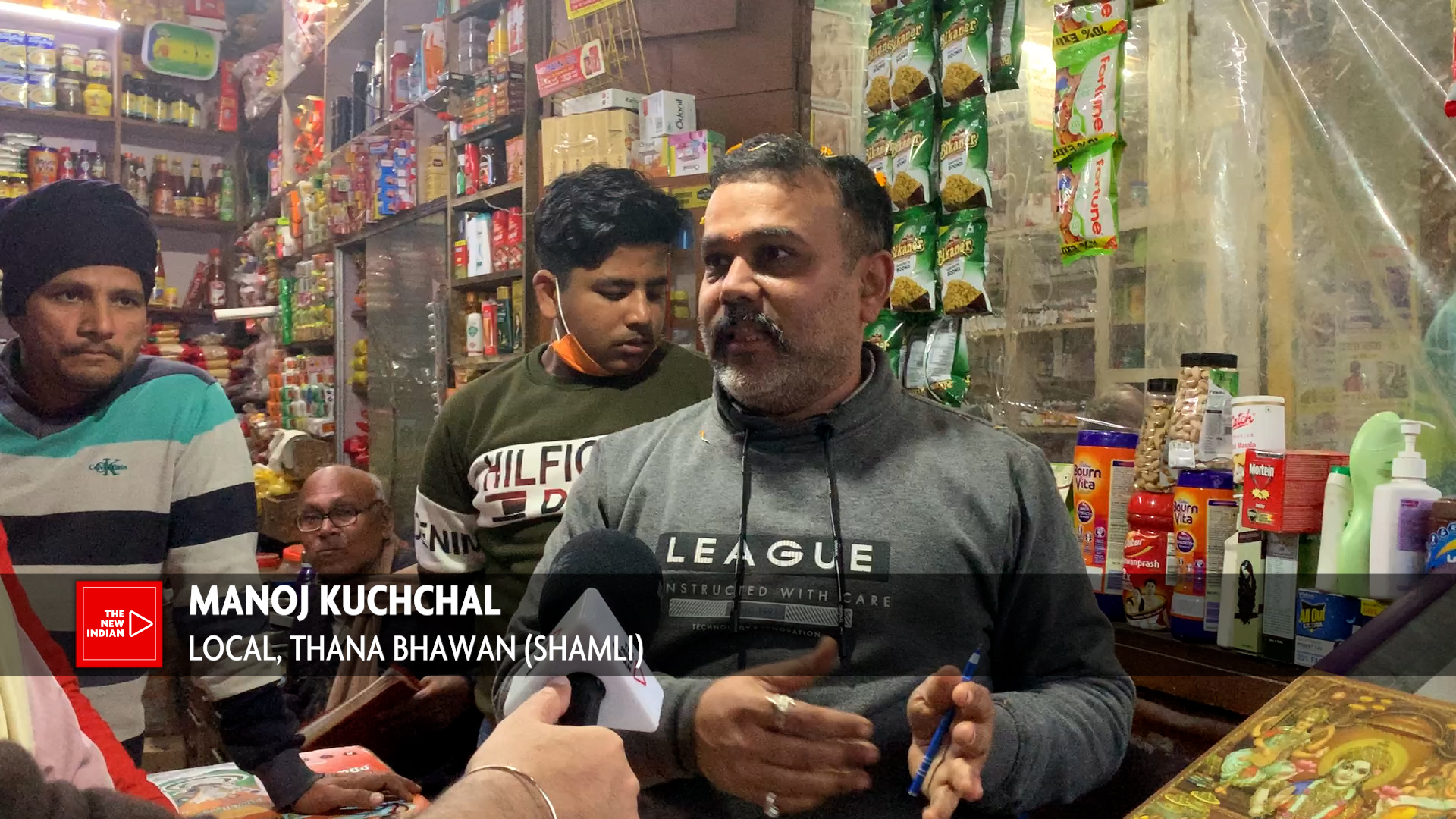THANA BHAWAN (SHAMLI, UP): At a roundabout near Hedgewar Chowk in Thana Bhawan — the constituency of Yogi Adityanath government’s sugarcane development minister and two-time MLA Suresh Rana in Uttar Pradesh’s notorious Shamli region — Manoj Kucchal, a retail shop owner, shudders as he recalls frequent distasteful innudendoes made on women by hawkers, real estate businessmen and and land sharks in pre-2017 days.
That when several gangs operated — Mukeem Kala, Fukran, operated here with contempt for UP Police. Most of them are behind the bars or have been killed in police encounters, a recurrent theme that Yogi government uses to describe it as an inherent part of Ram Rajya culture.
“Such was the disdain for women by members of one community that even hawkers and banana and apple sellers from lowest Muslim strata would scream at women — ‘Take this big size, long size’ —with oblique references to male genitalia. These expressions were in chaste Hindi. My brother Deepak wrote several applications and made pleas before the UP Police but to no avail. But you wouldn’t believe that instead of police, local SP MLAs like Naheed, would come and threaten us at gunpoint to take back complaints,” Kucchal, breaks down inconsoloably, almost into tears, as he prepares to cast his vote on February 10 in first phase of UP elections.
Jats like Raja Choudhary, Bhupender Malik, Rajvir Khatiyan join Muslim locals like Dr Ghufran Ahmad and his two sons Ashar and Arman as they all rally behind Kucchal.
It was during that era when Suresh Rana was booked over communal clashes when a 2013 Jolly Canal incident where Jat community men were allegedly ambushed by a Muslim mob, armed with assault rifles and other sophisticated weapons while they were returning from Beti Bachao Mahapanchayat on protecting dignity of females.
There are still those who don’t want to forget the wounds and deaths of their kin or friends, albeit from different castes but an unmistakable harmony envelopes Thana Bhawan now, 45 kilometre from Kawal village in Muzaffarnagar — the epicentre of those riots.
“I am a Rajput. I stood by my Jat brothers. I will stand by Muslims. Because BJP doesn’t distinguish between anyone except anti-social elements and civilised people. Samajwadi Party incited anti-social elements for their votebank and ensured power was concentrated only among bad Muslims who polarised us,” says Kiranpal Singh.
As The New Indian team reaches sensitive Shamli to size up the poll mood, many among Muslims make a feverish pitch for Rana. They even say he was framed by the then Samajwadi Party government.
“We are with Suresh Rana. We are against the indiscriminate support the extortionists and those behind eve-teasing enjoyed for 15 years. In this regime, there’s not a single riot, says Yusha Ali, who runs a jewellery shop with an average sale of Rs 1-2 lakh with just about 5 % margin for profit.
“We may be present in 18 % but more benefits come to us like 36 %. Riots during SP regime took place while development took place during BJP regime,” says Ali.
His shop stands right adjacent to Rana’s family home behind the bustling local market.
More like Ali heap praises on Rana for persuading their cases to get access to LPG connections for Muslim women under Ujjwala Yojana Scheme and Rs 2.5 lakh for homes under Pradhan Mantri Awas Yojana (PMAY) in Aspatal Colony, Reti Sarai, Hafiz Dost in Thana Bhawan.
“Rana’s name was dragged into riots. He got us 1500 homes, of which 1,400 belong to my community alone,” says Abdul Ghaffar, who joins Ali, while returning from his garment shop.
There are also those Muslim locals who say they readily agree with Yogi’s 80 vs 20 remark, with indirect swipes at Muslims.
“You, see that 80 vs 20 is also for those among bad Muslims who don’t support India and go against the sentiments of collective unity. We fully endorse his statement,” says Meherban, who sells bangles.
Another local, Sanjay, who works at a garment shop, says most residents had to guard their homes at nights, braving the chill at dead of night during winters when robbers would strike.











